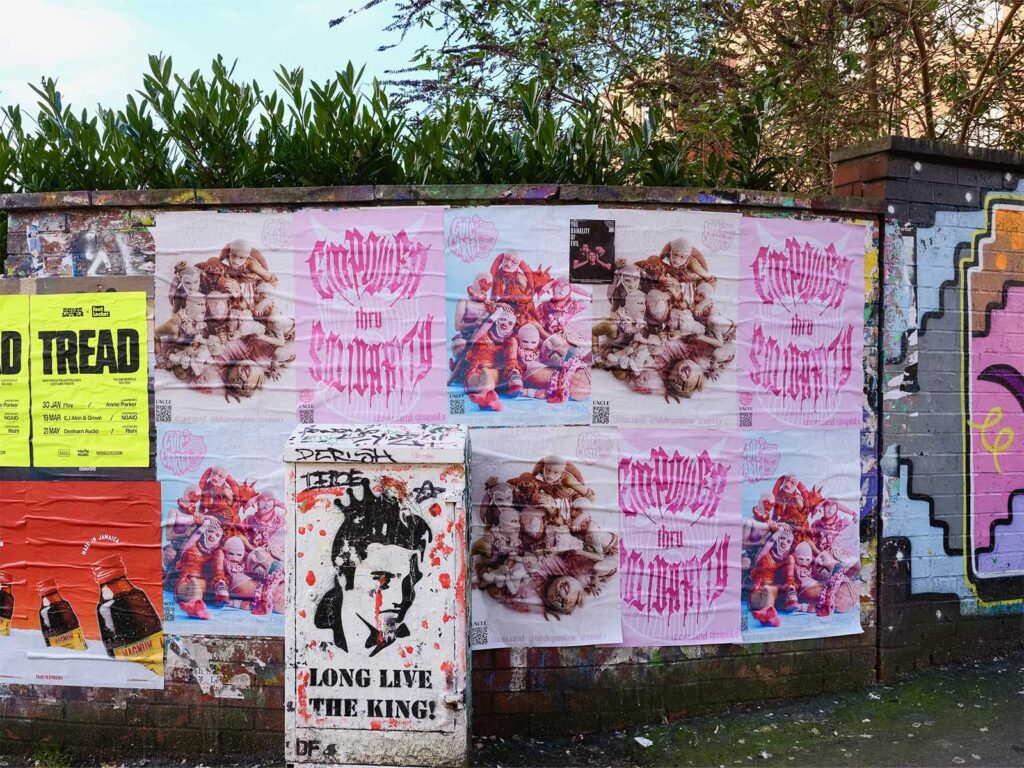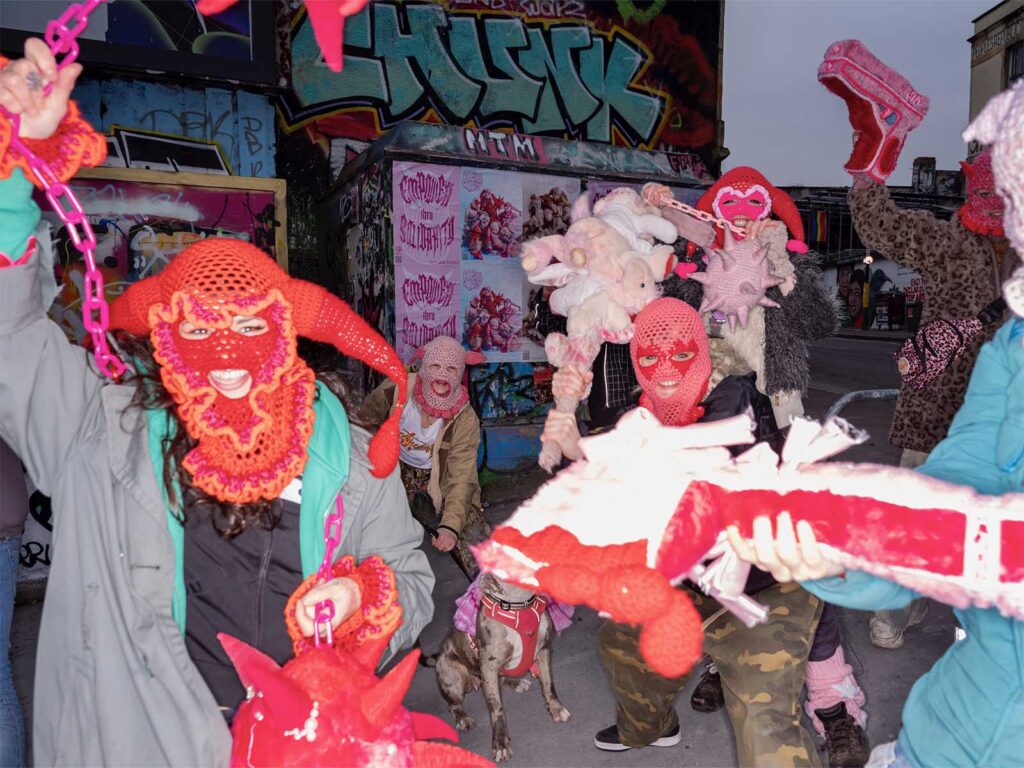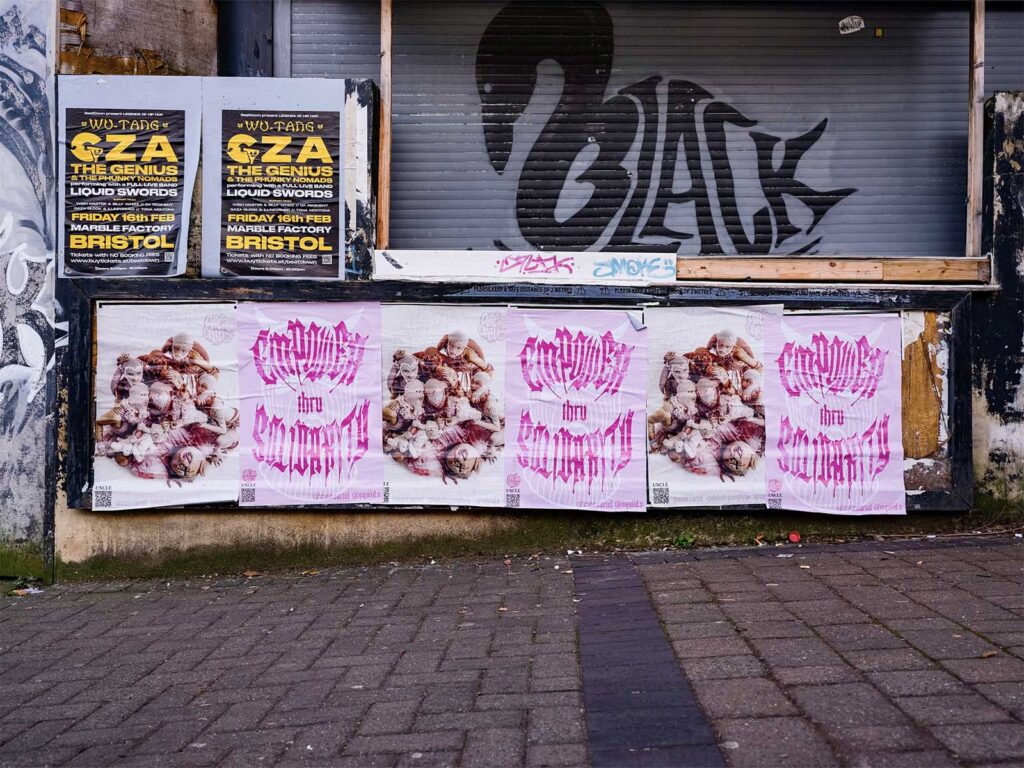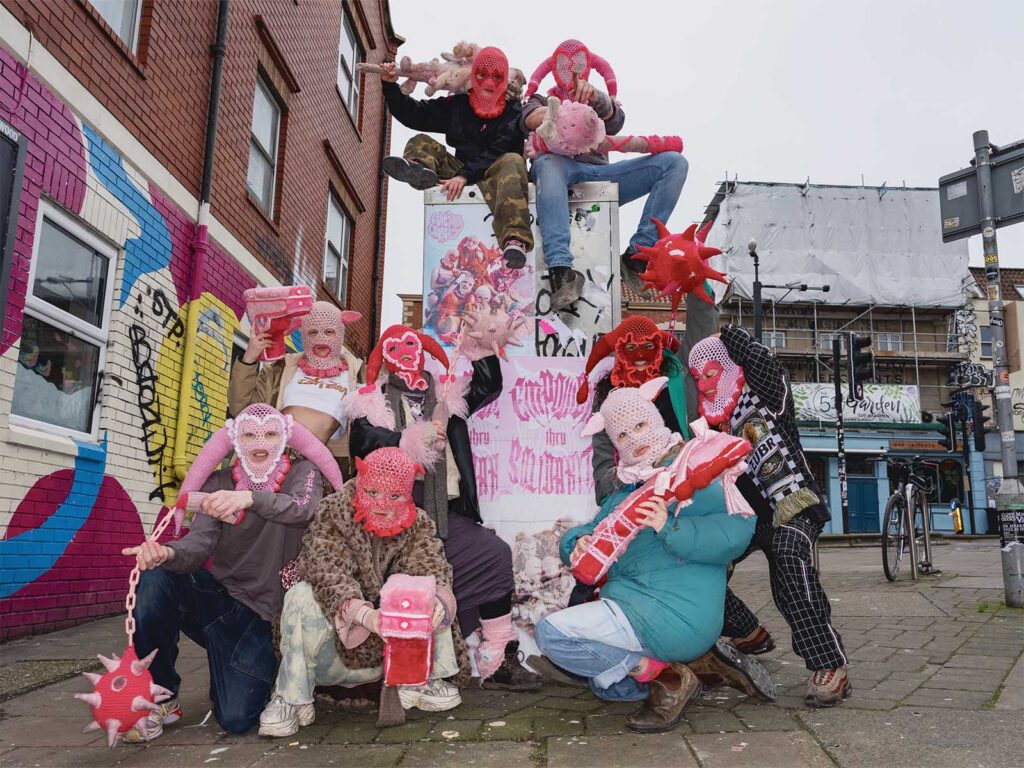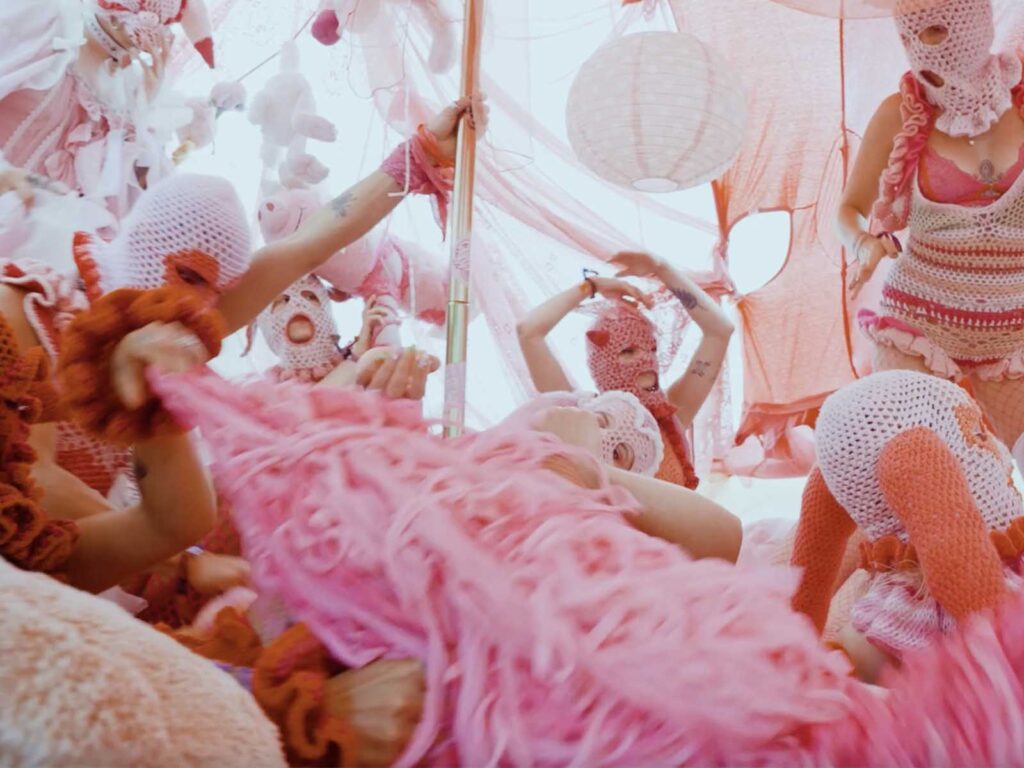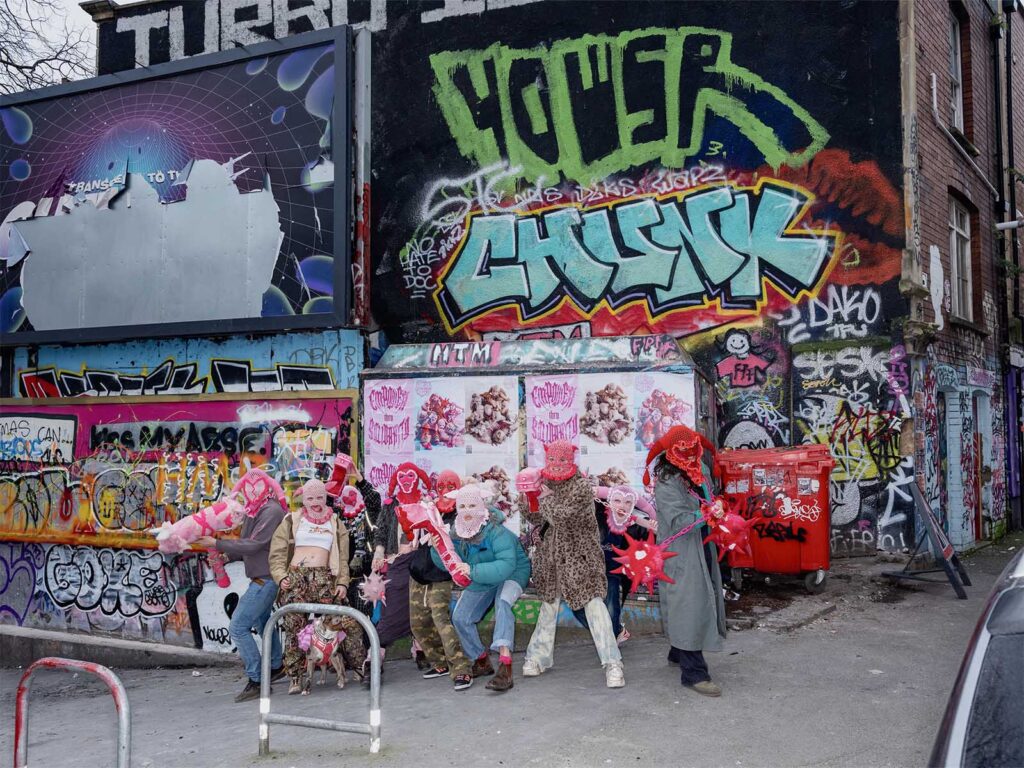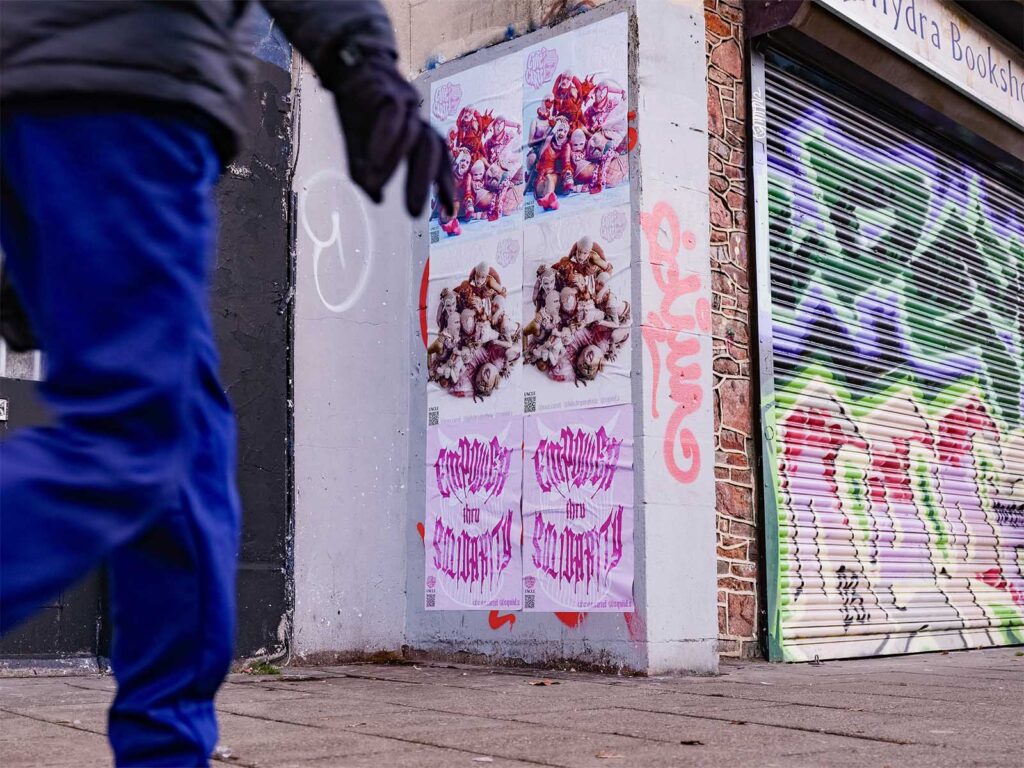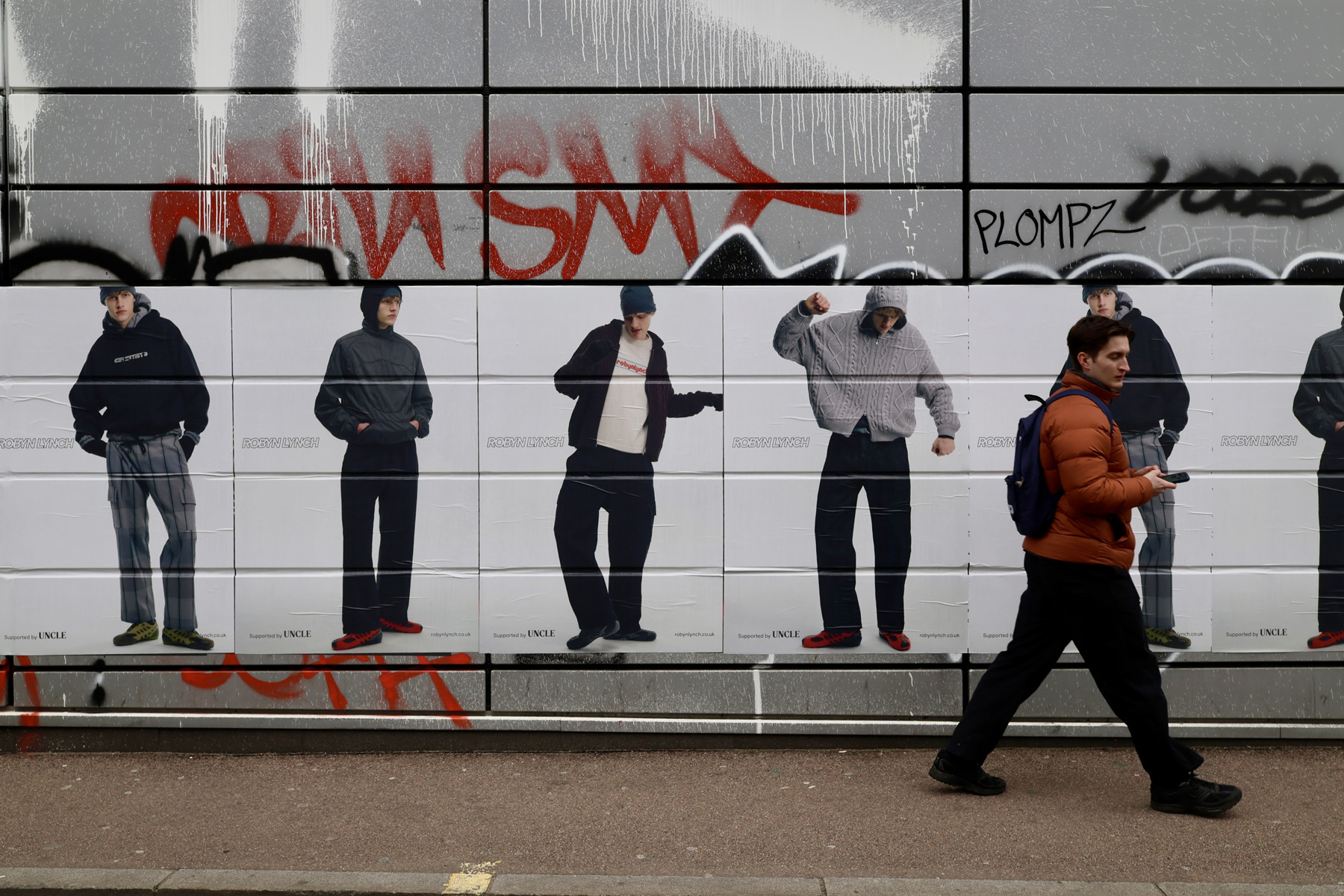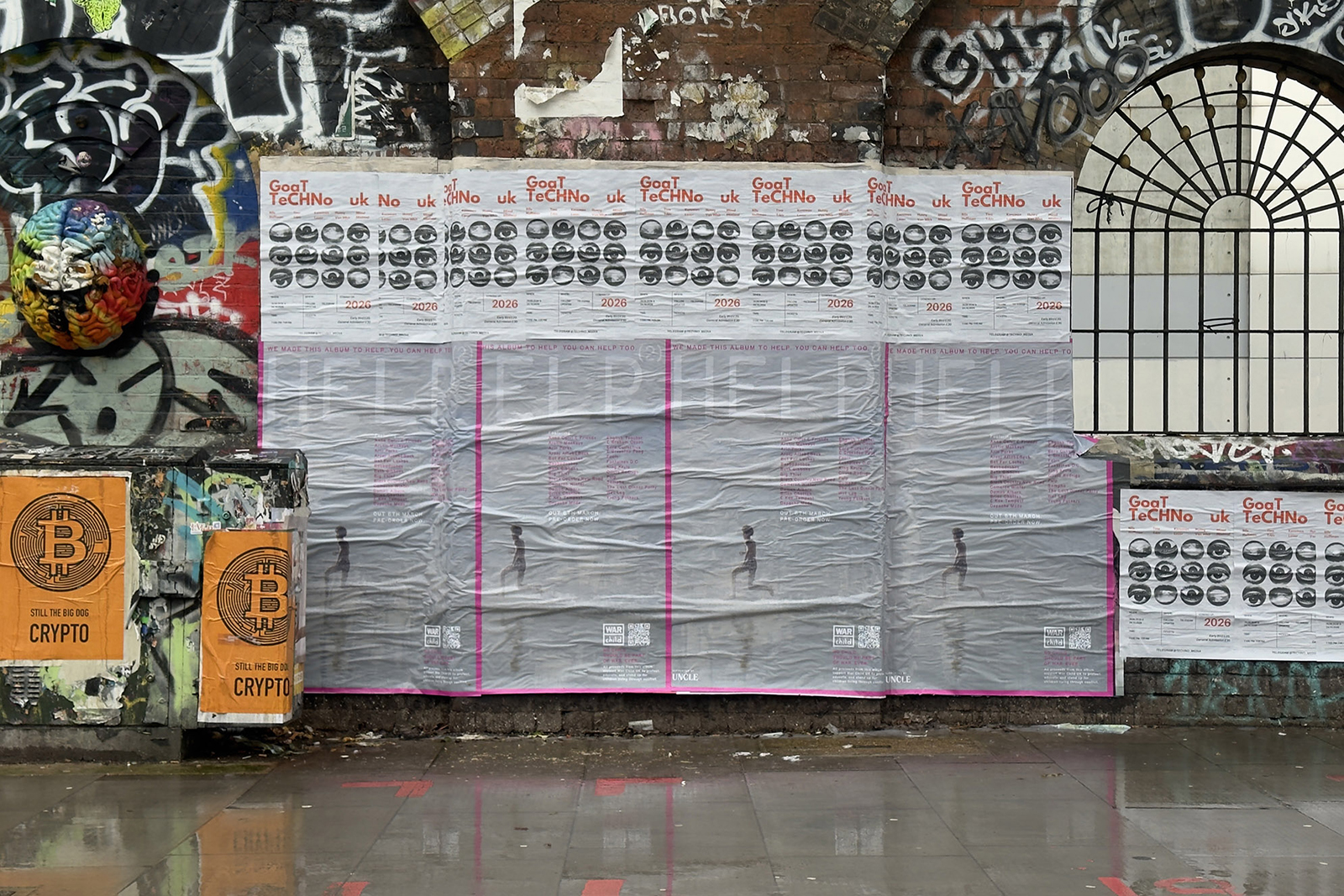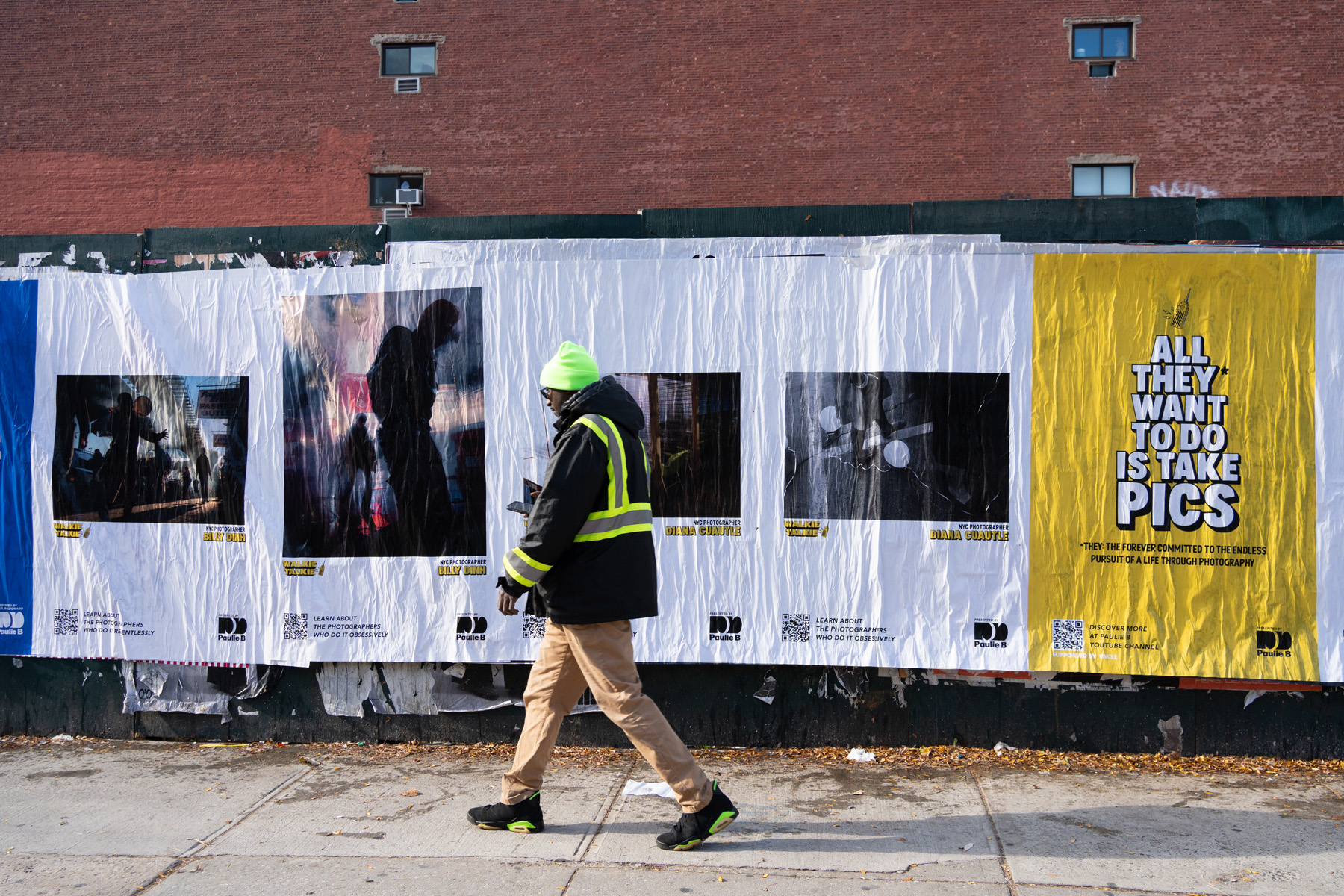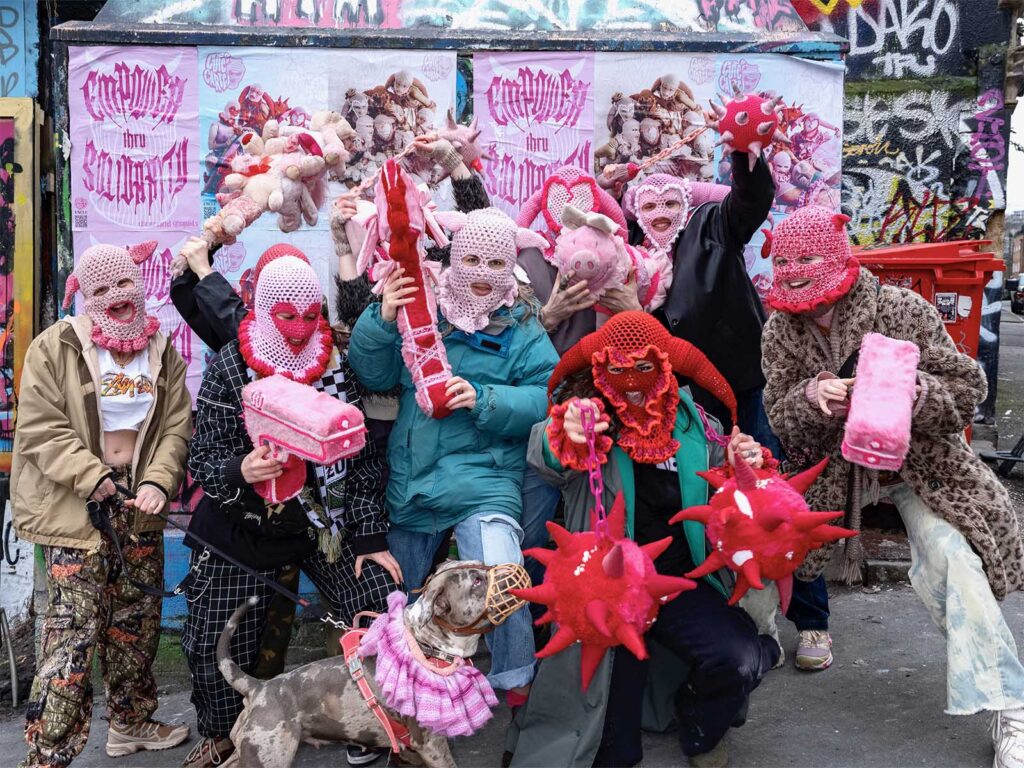
Bristol holds the title amongst UK cities for tending to be the most outlandish, progressive and experimental when it comes to the creative mediums. UNCLE’s latest collaboration is no exception to the rule – Cute Cartel are “A collective to raise awareness about abuse/trauma & provide support to those who have already suffered”. This is done through workshops and events put on by the group themselves along with appearances up and down the country at various festivals and other major events. UNCLE partnered with the Cartel to promote their activity and support for communities that need it most in the scene.
An eloquent conversation was had with the group who spoke with grace on a potentially uncomfortable and triggering subject. But this is part of their role, to break that stigma and start an open dialogue. The education they can provide those who are willing to listen is invaluable to modern society. We spoke through the roots of the Cartel and the work they currently now do to give an insight into the positivity they help to enact nationally.
WHY DID YOU DECIDE TO START THE COLLECTIVE CUTE CARTEL?
Squid: There was no plan in making The Cute Cartel, it was just an escalation from a desire to create art alongside a (collective) drive for change. I love utilising art in all aspects of my life and feel most comfortable when I am creating. Knitting and textiles has been a medium that makes most sense to me, but it wasn’t until I started knitting guns, weapons and balaclavas that I felt my wool became not just things to wear, but pieces of art.
This formed the vision of the collective, but the actual message came later. The message behind CC formed when I was very open about an experience of sexual assault and, more accurately, how normalised abusive behaviour was within our social circles. This sparked others to come forward and share their anonymous stories of similar experiences, with most people wanting to spread awareness and gain a voice that had previously been lost in the alienated feeling of trauma. The stories were the cornerstone of this community and made The Cute Cartel what it is today. The number of stories shed light on how common and widespread the issue is and also the intense reality of how many people are affected by abuse and assault in such a personal way. That is why it is referred to as a collective, as all people affected by the same issue helped to create this support network. Everyone in this community is important, even the ones who have more learning to do than others. At the start of this journey, I had no intention to create exactly this; it would never have been possible with just one person. Sometimes, when a space like this is needed, it is forced into existence by a collective of minds, and I feel that, fundamentally, this is what created the space.
WHAT IS ITS PURPOSE?
Squid: The space is used to provide support through the understanding that we are not alone in dealing with these issues; the imagery is used to raise awareness in the hope that whoever stumbles across us either finds solace in us or learns something. We take the anonymity very seriously and use the balaclava to symbolise the importance of that in the space while using it as a shared face to represent our unity. This space is not used to publicly spread hatred, shame or ostracise people. It is only for the people who have been traumatised to find a community that is unified in a drive to help heal those who are suffering. Every traumatic experience is different, but they all do require healing, and finding healing in each other while feeling empowered is one of the simplest, free and unified things we can do when facing aversion.
So many people are affected by trauma. It comes in many different shapes and forms; as it’s generally considered that trauma is a cycle, I believe one of the best ways of breaking this cycle is to understand traumatic events and how they affect us. The Cute Cartel has helped me at times when I have felt scared or triggered; just knowing that this community exists has given me support during times my trauma has resurfaced or when I have been met with another difficult situation to process.
HOW DID YOUR RECOGNISABLE PINK AESTHETIC COME TO BE?
Squid: Before the existence of CC, pink was not a part of my wardrobe. There are many reasons why I now love the colour pink, but it is important for CC because it’s shedding negative connotations of pink as ‘basic’ or ‘girly’ (Which it never has been, and certainly won’t be now). Every expectation of girly within this space is flipped into something that is bizarre and intense, which feels really empowering. Some have called the aesthetic ‘scary’, but this seems to come from an indoctrination that femininity cannot hold power in this way. Pink in CC is the colour of empowerment. Not even solely in the frame of femininity, but a colour that represents: strength, sexuality, unity and the subverting of social constructs (I may be biased or have been around CC too long that pink can no longer exist as a normal colour). Even though sometimes it can feel a little sickly, I feel really strongly about the aesthetic of pink being one of the most important features of the visual world of The Cute Cartel.
WHAT ARE SOME PAST EVENTS THAT YOU HAVE SUPPORTED?
Festivals: Balter/SGP/Boomtown/Beathearder/Nozsotck
Events: Homobloc/Crotch/395 residency
Squid: The events we take part in are the festival and music scenes across the UK. Some are being part of something bigger, but occasionally we put on our own events and workshops. We aim to spread awareness at these events and reach as many people as possible. Festivals are a good place to talk with people personally, while smaller events tend to be more politically charged. The eye-catching imagery creates an open discussion about the purpose of our group, giving us lots of opportunities to spread the word. Our tent also means we can put into practice a supportive atmosphere to replicate the work that we also conduct online.
Eilidh on Crotch: The Cute Cartel is totally perfect for Crotch – a queer-run space in Bristol. Cute Cartel’s presence there celebrates that we are amongst our people. We have a wider audience at festivals, so we are more likely to make a point. Like the slutwalks – but much more badass.
Daisy: The CC residency at 395 was an amazing week. We set up the space and spoke about our trauma and what CC meant to us; it felt like we were truly building a safe space for survivors, turning our negative experiences into something beautiful to help others. So many who attended commented on how much they valued an inclusive event that wasn’t male-dominated or focused on drinking/music. It was a breath of fresh air to have a supportive and cosy environment in which to learn skills, be creative, and share. I spoke to so many people that week who felt able to disclose past experiences of abuse because they were in an environment where they knew they would be listened to and understood.
Eilidh: For me, cute Cartel has been a real sense of community and the embracement of femme power, creativity and joy. And I love that you don’t have to be a certified performer to get involved; you need to have the right attitude and mindset.
HOW COULD THIS SCENE BE CHANGED FOR THE BETTER?
Squid: The scene surrounding us has come a long way; even only 5-10 years ago, things were drastically different regarding these issues. There are many ways that change can be created to push for a future where assault, abuse and trauma aren’t as prevalent; I have personally found that it’s not the lack of ability to talk to other survivors, but actually the perpetrators of this behaviour themselves. My experience from confronting most (not all) people who have acted abusively towards me has been one where they are unwilling to accept that their behaviour is crossing a line. I can see that, with cancel culture, the thought of having a label is scary, so I do also understand why people have reacted this way. I think everyone has a different opinion based on their own experiences. Still, I personally believe that we need to give people a chance to change before we cast them out for behaviour that is most likely within their own cycle of trauma. We should educate effectively while being mindful of the people who have suffered and what is actually an effective way of changing the behaviour of individuals who have learned to act in ways that are harmful or disrespectful to other people. While creating support for those suffering and pushing to create a space where change can happen, I think it can do more within our scenes.
HOW CAN WE BE MORE MINDFUL IN SPACES THAT YOU OPERATE IN?
Squid: Being mindful in our scenes is learning and accepting the ways that our behaviour may not have been good in the past while putting in the time and effort to change and grow as people. Understanding why this behaviour is a problem and where it comes from is a big way to put in the right groundwork for preventing this from occurring again. People have to love and respect themselves first before they can treat others the same, so a big part of mindfulness is understanding oneself and choosing to behave in specific ways, which puts into practice a better way of treating others.
Levi: It’s important to make everyone feel as included and comfortable as they can be within a space so that they have the confidence to speak out on discriminatory or bad behaviour. Awareness and mindfulness of each other or behaviour that can harm one another must be taken more seriously but handled effectively to create change in our spaces. This way, we can be more conscious about assault and violence while giving more voice and support to the powerless.
Hatti: What I always try to keep in mind is that you don’t know who you are going to meet, what their day looks like, or their life, the last time they had a hug, what happened before they walked out their front door, if they had breakfast or if they can even afford breakfast – all of it! For me, that’s being mindful, acknowledging and welcoming with open arms, whoever someone is. For me, that is what the CC vagina creates, a place to leave those things to the side and just play, knowing that everyone is there for the same reason.
Lauren: I think it centred around the core message of CC; respecting boundaries and consent. The vast majority of people are respectful and love the message of CC. Even when someone isn’t learned on these issues, after one conversation you can usually see them start to think differently.
WHAT DO YOU HOPE THE COLLECTIVE’S LEGACY WILL BE?
Squid: It’s not so much hope for The Cute Cartel to have a legacy, but our message to hold its own legacy in the change it creates. For issues such as abuse, harassment, sexual assault and rape to decrease or be diminished for future generations. I will never cease to create art, and it will definitely take me on other journeys and possibly away from CC. Whether The Cute Cartel has a legacy or not, one thing that me and every person who has been involved wants, is to make the changes that are greatly needed to prevent further abuse and trauma and treat each human with complete respect. When I was younger, I said one of my dreams was to make a dent in the world, however big or small, and even to know that this project has helped or supported anyone makes me feel that my personal dream has been made.
HOW ARE YOU TIED TO THE CITY OF BRISTOL?
Squid: The Cute Cartel began through the heart of the love for art in Bristol as I lived there for 3 years and began the artwork during my time in UWE. We have a range of performers from Manchester, Bristol, Liverpool, London, Wales and Chesterfield. But it was this weird and wonderful city that opened up an explorative space through its acceptance of all things unusual and the different ways of expressing oneself and one’s art. In Bristol, there are so many different characters and extraordinary individuals who are all accepted and celebrated for their uniqueness in a way I have not seen to the same extent in another city in the UK; it was the perfect city for the birthplace of CC.
HOW HAS THE SCENE CHANGED IN BRISTOL AND BEYOND SINCE YOUR FORMATION?
Eilidh: Bristol has successfully raised awareness against issues such as spiking and night-time harassment. There have been publicity and training campaigns, such as the Bristol Nights Women’s Charter and the introduction of PHAT security, a new, non-threatening approach to security. Obviously, this is happening in certain pockets – while other parts of Bristol are totally stuck in outdated mindsets.
Ashley: The Bristol scene has changed massively from the first time we showcased the fluffy crocheted balaclavas and guns; people are more actively looking after one another. Around Bristol some posters put forward this message in respecting each other and loving oneself, alongside new posters that showcase the ‘DONT BE A CREEP’ message, directly addressing anyone who is not adhering to what we stand for. A lot has progressed in the past five years from attitudes like ours, and we hope to continue spreading the CC message to future generations to create a more thriving and wholesome community.
Hatti: Bristol is always blossoming and blooming; it has been forever and always will. Despite struggles in the shutting down of venues and events being underfunded, it will always power through because of the creative energy here. The scene is much happier, takes itself a lot less seriously and is more queer-positive. However silly it can be here, there’s a real feeling of being conscious of the darker sides of nightlife and event culture. Bristol is cracking down on it but with a community-led approach – people are taking it into their own hands to keep their communities safe. It shouldn’t have to be like this, but the proactive approach of this scene is definitely something to be proud of.
WHAT IS IN STORE FOR THE FUTURE OF CUTE CARTEL?
Eilidh: I believe the next step for CC is to diversify – as a group of friends and circus performers, it makes sense that we are not there yet, but that needs to change as we grow. We aim for more representation, focusing on POC and diverse body types, but not in a tokenistic way. We plan to incorporate politics into our performances to increase awareness of our message. Additionally, we aspire to engage more with the community through workshops, banners, signage, information cards, the creation of safe spaces for survivors, and the implementation of safeguarding measures. Particularly at festivals, we envision having a ‘consent card’ to distribute to people who harass us, streamlining the process and avoiding repetitive conversations.
Levi: We are eager for more opportunities. The Cute Cartel has embraced almost every chance to raise awareness and attract attention to the cause. I hope more windows of opportunity open for CC, and more reflective possibilities arise so that a wider variety of people can feel celebrated, most importantly not alone.
Daisy: My hope for the future is that even if there isn’t a CC presence at events, there will be in spirit! I hope that CC will de-stigmatise conversations about sexual assault and abuse while radical acceptance and kindness become mainstream. I hope CC can help people find their strength following traumatic events and see the power in being a SURVIVOR. That is what my balaclava represents to me – my new identity and symbol of liberation.
Squid: I tend to not make plans that are really far ahead in this project, as it does tend to follow a path of its own and there are many people who come up with new, effective and exciting ideas. We will continue to do whatever we are capable of when it comes to events and festivals, although as a group we are largely underfunded and are forced to raise money in order to keep it alive. One overall plan, amongst the continuing desire to create as much as change as possible, is to make this project sustainable for all the people involved.

